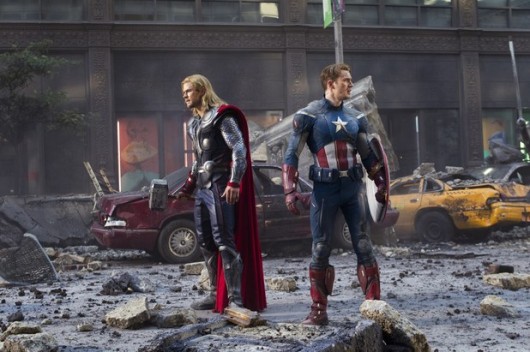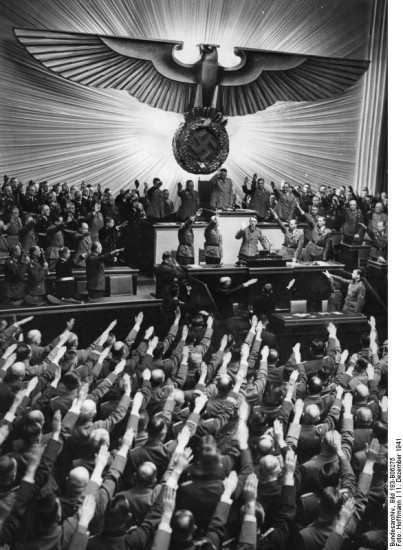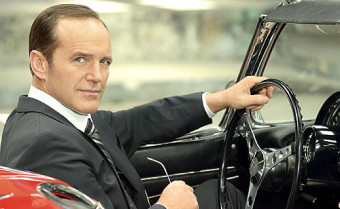
Roland Topor
I wanted to follow up on the last post. And I want to discuss in a sense why Tragedy seems to impossible today.
I recently found myself in long debates about two popular cultural products, The Avengers and Breaking Bad. I realized that this sort of discussion is problematic, in the same way Obamacare arguments are problematic. It is problematic because government shutdown is just bad theatre. Just a bad movie. But to explain that to, even, a lot of leftists, requires a long and often tedious discussion. Same with having to discuss The Avengers. Someone had gotten very upset at the idea that I called, what was clearly a favorite film, “fascist”. But this raises the question of what I began to try to talk about last post. What is it that a society asks of art and culture?
I thought about the idea of Tragedy. The word itself, like many words today, is used in ways that cheapen its meaning. However, that aside, if the subject is art and culture, then the definition of Tragic is narrowed down further. The master narrative has never been as firmly in place as it is today. Tragedy cannot exist in a narrative devoted to and created for the preservation of the status quo. Someone said people find it easier to imagine the end of the world than the end of capitalism (it was either Jameson or H. Bruce Franklin, later misquoted by Zizek…if I trust Molly on this). Today’s studio films and network or cable TV are perfect examples of this truism, a truism which reflects the point of view of those who make studio film and network TV…though possibly, increasingly, the entire educated class in the U.S. Now, there seems to be a longing for a mass tearing down of society, but only to rebuild it in a newer better, more pure, version. I think this is shared in different ways by the haute bourgeois manufacturers of this junk, but also the general population. No doubt for different reasons. In any event, Restoration stories abound. There is a relationship, always, with technology. The most bizarre example of this is J.J. Abrahms produced series, Revolution, in which technology magically (actually its some nano technology virus …or…well, something) stops, turns off, and the world is thrown into a sort of cozy autumnal horse and buggy world, all bathed in the faux amber glow of candles. It is, of course, also a series about the military. In almost all these restoration shows, the survivors resort to military discipline and logic and methodology. Characters utter quotes from Sun Tzu or Douglas MacArthur, and former soldiers somehow come forward to lead the unprepared masses.
But back to The Avengers for a brief second. Two things struck me in this mini debate (with someone I dont really know, and who I assume is, and hope is, quite young) and those were the assumptions behind these super hero tales, and secondly, that they were incredibly well made (so this person argued). That comic books are intended for boys around 13 or 14 seems now forgotten. The entire society is, in a sense, 13 or 14. But when you look at these characters, it is hard to imagine exactly how they relate, in the brains of their fans, to the real world. And what can anyone mean when they say such junk is well made?
So, I think, as the U.S. government shuts down this week, meaning many functions of the Federal government, it is important to look at what has been normalized in these super hero films. The first thing, the primary thing, is the belief that there exists, and is needed, “secret” organizations of the government. How many shows this last few years are modeled on the trope of secret clandestine arms of the military or government? It is stunning to really contemplate, for just off the top of my head we have Marvell’s Agents of S.H.I.E.L.D., Crossing the Lines, Orphan Black, By Any Means, Continium, The Avengers, Iron Man, The Dark Knight, Mission Impossible, ….or you get the idea. In a sense, the idea of secrecy is a foundational part of all narrative. It is only that it has been colonized by the world’s militaries (mostly the U.S. and U.K.). So the backdrop here is one in which the audience now assumes that secret organizations are operative. They are operative and they protect people. They spy, and maybe that’s a tad uncomfortable, but it’s, again, for our safety. That is the backdrop. The state does things we cannot know about, and shouldn’t ask about. There are other elements at work in these shows, and one of them is that of property, or real estate. One of the visual codes at work in all Zombie or virus films is the longing for prime real estate. In all these films and series, you get endless shots of empty cities. Empty, unguarded prime real estate. Where are all the people? In The Avengers, one might well ask why the streets are not awash in blood and human remains? The most densly populated chunk of real estate this side of Kowloon, and nary a dead or mutilated or bloody corpse.

The Avengers, 2012, Dr. Joss Whedon
One of the messages of all these sci-fi juvenillia is not to fear the apocolypse. It’s not so bad. You can squat on Washington Square, or Rodeo Drive, and you can fix up a beach front condo in Venice, and there won’t be any stink from the rotting remains of people, and if there is, a pristine and lovely countryside awaits. One can forage for food, plant a few beds of arugula and raise a few chickens (free range of course). Sanitation is NEVER addressed. Overflowing toilets, lack of all plumbing, and of course clean drinking water is rarely, and maybe never, addressed. The world after the great catastrophe isn’t so bad really. It strikes me as more of the producer’s dream world. Great property, no noisey neighbors, and an ethnically cleansed city.
So, still, as these fantasies proliferate, the sense of realism is reinforced. It is the same with all studio product. People think Wall Street is full of cute hunky men in bespoke suits, wearing ICW watches, Alden brogues and Versace sunglasses. Some are, well, a tad greedy. Audiences come to believe U.S. police departments resemble what they see in TV. The reality of the suffocating and depressing little rooms that house unspeakable amounts of human misery are never shown. Its all L.L. Cool J. and funny old grumpy captains and fun and games. The “bad guys” might get beat up, but they quickly recover. The over crowded and shockingly chaotic big city jails across the U.S. are the subject of a few documentaries, or reality TV shows, but that is not what people remember. That is just ‘suffering porn’. That is cultural slumming for the elite or wanna be elite tourists of the white 20%. The violence, the rape, the mental torture of U.S. prisons and jails is never really shown. Even a show reputedly realistic such as Oz, is a fairy tale. The squalor and fear in American jails rivels any in the world. And such has it always been for the least defensible constituency in the world. Prisoners.
The backdrop, in other words, for popular cultural product, is a manufactured real that rejects complexity, disease, and moral ambiguity. In its place we have sanitized worlds of opportunity, of reduced narrative, and moral absolutism. We have binary worlds of good and evil. And we have an ever growing ethos and belief in punishment. The real visceral feeling of hopeless despair that you can taste the second you walk into any prison in the United States is absent in all popular culture. It is the simulacra of despair, the copy of a previous copy of prison edginess.
Now, these worlds are also predicated on white supremacism.
Here is Malcolm Harris’ follow up piece on Walter White, puts it………..
“The white guy who enters a world supposedly beneath him where he doesn’t belong yet nonetheless triumphs over the inhabitants is older than talkies. TV Tropes calls it “Mighty Whitey,” and examples range from Tom Cruise as Samurai and Daniel Day Lewis as Mohican to the slightly less far-fetched Julia Stiles as ghetto-fabulous. But whether it’s a 3-D Marine playing alien in Avatar or Bruce Wayne slumming in a Bhutanese prison, the story is still good for a few hundred million bucks. The story changes a bit from telling to telling, but the meaning is consistent: a white person is (and by extension, white people are) best at everything.”

German Reichstag, Berlin Dec, 11th, 1941
I want to get back to the idea of the Tragic, but do so requires a bit more about this manufactured ‘real’, for judging from my interlocutor this week, it is a concept, perhaps, harder to grasp than I thought. The villains in most shows, are either Arab Islamic Terrorists, Mexican or South American cartels, and if those are too repetitive, then a Balkan or Russian oligarch. The trend to use Serbs as the default setting for bad continues, as was evident in the pilot episode of The Blacklist. Accents are bad. Russian, Arab, Serbian, Mexican. And really, even French or German are usually suspect, too.
There is in these manufactured white world views, an accompanying anti-communism and trust in market solutions. The market joins with “common sense” and the always present anti intellectualism of studio and network product. The common sense idea takes several forms; one is the belief in “leaders” (well, in white leaders) and their natural emergence from a clueless stumbling Zombie crowd. The leader is authoritarian. Always. He is also, almost always, a man. The sense in restoration narratives today is that physical strength and power, and skill sets derived from weekends in boot camp or survivelist seminars, are crucial to creating this brave new world. You can add to these ideas, a sort of blanket Orientalism and romanticizing of Native innocence. This is the “Navi” syndrome. I am reminded of the depression that followed audience identification with the world of the Navi, the world of Pandora. There is perhaps no more colonial narrative in popular culture than Cameron’s fantasy of studio chiefs and their natural superiority. The conquest of the Navi is the confused inner landscape of millionaire fascisits like Cameron.
The real material crises of Capital are ignored. The insane poverty and desperation of Somalia is reduced to a courageous White capitan in Tom Hanks new paeon to white goodness. Black Somali pirates, and the good white American capitan. You might as well be sitting in a reading room of the Raj listenning to Kipling. The real crises of drought, of polluted waterways, or civilian death from misfired (or intentionally fired) hellfire missiles, or the anxiety to pregnant women from high birth defects are all ignored. That is not ‘real”. What is real is Joss Whedon. What is now assumed as a default setting for reality is what people see on TV, and not just in prime time narrative drama or even sit coms, but in the News. Which includes the various morning shows and weekend magazines. The real message of these shows is the creation of a ‘real’. Stories come and go, but the presentation remains a constant and a reassuring one.
http://www.today.com/video/today/53163957#53163957
The above boring clip from a minor news story serves, however, to demonstrate the fact that very little news, very little information of any substantive sort comes from these shows. You do get to see Kim Kardashian’s wedding presents, and you get to see a few other “human interest” items, but more than anything else, you get a cozy friendly warm group of attractive (but not too attractive) news readers and hosts. The set is cozy, bathed in a neutral light and without any particular noticable style other than generic “TV set” — a bland sort of polyester vibe that offends nobody. The normalizing of indifference: the same tone is used for bomb scares as is used for a child’s drowning death as is used for how to make popcorn and melted cheese as is used for drone death (well, really, we don’t get too much drone death). This is “real”. Into this real come various storlines and drama that one sees in franchise cop shows or melodrama. It is the world created by studios and networks. A mass audience has now come to spend more time with these articial worlds than they do with anything else.
White superiority. White civilization. Somali pirates from a “failed state”. There is a genuinely repulsive quality to Hanks these days. He has the sanctimonius pursed lips of a Cotton Mather, the look and bearing of those middle brow performers who rise to the self declared mantle of greatness, man of theatre, etc. It is the male Diva syndrome. But I digress…
Tragedy is linked more closely with the Tony Smith sculpture I discussed last posting. The nature of that linkage is important.

Oprah and war criminal
The tragic defies the status quo. That Dionysian energy that informed Attic Greek drama, has migrated to the rejection of social conformity one sees in a Smith, or Turrell, or Judd, or…in Beckett and Kafka. Art is always about reality, because in the end it is a form of knowledge. And knowledge is always somehow linked to society. When Adorno spoke of truth content, he believed that this trumped social content. But, he also believed that truth content was forced to express itself in appearance and that appearance was then placed in oppositon. The artist found expression, discovered the appearance, and then opposed it. But form is historical. That Tony Smith sculpture is the distillation of appearance historically mediated. It is recouperating historical form. It is also negating it.
Narrative truth content. Lets take Kafka for the moment. Kafka’s The Trial is the distillation of truths connected to bureaucratic oppression, to the state’s callous tendencies to hurt and damage the individual. It is also the appearance of a rational story. It is familiar, up to a point. Beyond the familiar the reader is exposed to a growing emotional pressure, that K is doomed, that the reader recognizes something of our own doom, our own fatalistic tragic awareness. That suspicion and guilt are woven into all social consciousness. But that authority deforms these emotions. It is not identification. It is recognition. I am not K. I am, however, fated to lacerations the state must disseminate. Some get more lashes, some less. Some, perhaps, none. Or, of a different quality of lashing. As the reader goes further into that narrative, the sense of truth grows. The fabric that promises redemption begins to fray. At some point the reader recognizes the truth of this. In say, Joss Whedon, there is only CBS morning show reality. There is only a world of bland reasurrances. Superheroes don’t die. Bodies don’t smell. Nothing smells. Nothing stinks. Nothing goes rotten. There is certainly pleasure in escape. The purpose, in a sense, of much popular culture is just escape. It is there to numb.
If Breaking Bad is seen as social commentary, if it positions itself as something that has depth lacking in DC comics, then its responsibilites grow. Of course its really just escapist junk. But I will say, among the virtues it does have is that it told its story at the pace of a 19th century novel. And there is something in such expanded narrative, that feels like a relief. That relief is no doubt being confused with profundity.

Dorthea Rockkburne
To put it another way, political truth is implied in the truth of form.
“Truth content always points beyond the immanent aesthetic make-up of artworks towards some political significance.”
Adorno
The triteness of popular culture is part of a program of numbing. The real world does not smile back at you. The bland inoffensive talking heads of network news shows is a form of lying. The depiction of Somali pirates amounts to a familiar grand lie of white exceptionalism. What matters here, in one sense anyway, is that some artworks achieve import that is simply ineradicable. Often, there are mysterious reasons and forces that account for this. In other cases, one could point to the integrity of the author or creator. The discipline that gives import to the work. One might debate, for example, Pynchon’s Crying of Lot 49. One can debate various aspects of the aesthetics, of the quality of writing. But that novella expressed something at a moment that almost demanded expression. The popular explanation is couched in terms about the Zeitgeist, about touching a nerve, etc. Still, the book has import because it has not exahausted itself in the popular imagination. The book still feels as if it demands reading. Honestly, I don’t know quite what I think of it, but I know I ‘do’ think of it. Blood Meridian is another book, that however much one values or dismisses McCarthy, looms like a ghostly wail across the cultural landscape. A novel such as Death of Virgil, by Herman Broch, is likely not read a lot these days. Still, it is hard to imagine that it does not occupy cultural space regardless. Published in 1945, it describes the final hours in the life of the Roman poet Virgil. The density of this narrative registers something powerful about historical forces, the kind that evade our everyday life, perhaps now more than ever. It is possibly the perfect counter-work to some of today’s acclaimed and mass produced product. It is not, by the cultural standards of our day, an enjoyable book to read. So, what does that mean? I suspect those who defend Joss Whedon or Jim Cameron, or Vince Gilligan will find it inpenetrable. It is, however, exactly in its density and the care in reading that the book demands, that meaning occurs. What has taken place today, in popular culture, is the installing of a mass produced and pre-formed aesthetic that valorizes enjoyment and disposibility. But what does it mean to say Breaking Bad is enjoyable?
Here the question returns, the question of “fun”. Of pleasure in cultural terms. Visiting Disneyworld is enjoyable, and so is eating a box of chocolates. So is torturing small animals to psychopaths. Does enjoying Joss Whedon harm anyone? Well, not directly.
“Benjamin sees sovereignty as a partaking in a kind of rebellion against God’s authority. In his strongly theologically inflected language, Benjamin sees sovereignty as being part of what he calls (after Marx) the “phantasmagoria,” a network of fallacious ideas that are wrongly projected onto God, or given divine attributes when they are in fact entirely of human derivation…”
James Martell
This is really an aspect of the core question. That what are in fact just manufactured opinions and beliefs are labeled as reality, as part of nature. The relationship audiences now develop with their favorite products are mystified, are given a sort of value akin to primordial experience. In fact, as real experience is ever shrinking, the valorizing of kistch product is ever inflated.

Ron Davis
Now, there is a backdrop involved here, the grounding for this mass produced entertainment. One way to talk about it is to address sovereignty, as Martell does. The antiseptic cartoon violence of comic book narratives, or the various network police dramas, are both normalizing the idea of violence as an everyday activity, an activity that takes place in a very simplified binary world, and it defines the role of the viewer as passive observer of an Olympian priest class onto which all desires and feelings are projected. The message is always the same. Authority is ordained in the institutions of power, and to question it is to be transgressive. It is to be abnormal. I would add that a very significant dimension of this is created by the mental health business. An entire couple generations have been medicated toward an ideal of passivity. The baseline is acceptance of the status quo. Fit in, conform, and enjoy. But more on that below.
An inability to have fun is stigmatized as an illness. This weeks government shut down seems to be experienced by many as the fault of these horrid right wing Republicans who are holding Obama hostage. All the many crimes of Obama are washed away. I had a conversation with an arch leftist who demanded that one consider the people who would suffer without Obamacare. This is the new real-politik. It is really just another form of conformity. It is also a typically short sighted vision of the political Spectacle. So, what does Joss Whedon have to do with Obamacare? What do either have to do with critical aesthetic discourse? The answer is, as I suggested last time, rather a lot. In this manufactured ‘real’, the world of Somali pirates is reduced down to a Manichean world of good and evil. Heroism is vested in the white Captain, and his role in the world is reduced to the terms of this simplistic movie. White leader saves boat (America, freedom, individualism, patriotism, safeguard from black infection, etc) while pirates (black savages, pre modern untermensch from failed state, starving but dangerous sub-species, etc) try to tear down culture and take over progress. A movie that reflects once again a White exceptionalism. Colonial history is absent, and the reasons for the dire state of Somalian society is given only passing mention. I can almost guarantee Hanks will win awards for such performances are highly flattering to the machinery that produces them.
Lambert Zuidervaart describes Adorno’s thinking on art and politics this way:
“Hence art’s political impact depends on a circular process, autonomous art becomes politically effective by calling for a consciousness that can let art have a political effect.”
In other words, the first step toward that consciousness is the development of the ability to read artworks, in any medium, as possessing qualities that question the status quo. Now, this questioning takes various forms, obviously. But if you start with a simple distrust of mass popularity, that’s probably a good first step. I mentioned Pynchon earlier, and while (like Broch, and a host of others) that book is famous, it is also a book I think rarely read if it compared just in sheer numbers with the vast popularity of Hollywood product. Or, even, with the numbers attributed to most best sellers today, or even those acclaimed by the N.Y Times. The point is that on the level of popular consumption, very little of any value is ever rewarded by the corporate media and its minions. Finally, it probably doesn’t even matter if these new books embraced by corporate media are actually read. For none of this valorizing is based on anything other than marketing. Malcolm Harris’ aside about Chryslar product placement in Breaking Bad is to the point, here. One is participating in the machinery of authority, but also in the aesthetics of the trivial. “Enjoying” Joss Whedon is enjoying and indirectly validating the authority of Hollywood producers. Films largely succeed or fail depending on the extensive marketing of them. It is not much different in any cultural realm today. The audience is acknowledged by references designed to flatter their already existing knowledge of previous product. Oh, that new Chrysler borrowed its headlights from an earlier Ford design. The consumer is an afficianado.. This is taken as content. Now, the superhero franchises are particularly crude examples of this dynamic, but it is true all the way through to Rachel Kushner and Jonathan Safran Foer.And I guess Stan Lee.
And here we run headlong once again into irony. The advancement of ironic appreciation of junk, the elite appreciation of junk, and the elevating of the idea of “fun” once again, all converge to form the current dominance of popularity and the validating of consumption per se.
Now, there are also faux exceptions. The liberal do-gooder film. Dead Man Walking, or Hurricane or whatever. These often feature minority protagonists. Hell, some are directed by black or brown directors. None of that really changes the essential framing. It can’t. It’s not possible. What accounts for the creative bankruptcy in 99% of film today?

Gordon Matta Clark
Well, that ties into all the above. Now, again, I consume as much junk as anyone. I love good genre. Sadly I see very little. But the real issues here return to the consumer as expert. And to irony. I suspect there needs to be a more in-depth critique of just irony. For there are varities of irony. The public wants to believe, and does believe, it is exercising free choice. It can pick and choose among a variety of products. Blue toothbrush or green. Angled bristles or straight. Mint toothpaste or wintergreen. In the end, the real identification is with shopping, not with the product. The product is secondary. It is the skill and choice demonstrated in shopping. It is also that this idea of agency or sovereignty, which is exercised in free choice. The public does not like to believe that marketing creates the desire for something. It wants to believe that marketing just responds to this autonomous choice, that market solutions are a producer responding to the inherent desires of the consumer. As if these desires fell out of the sky, full blown. This is the astrology paradigm again. I am someone who likes musicals. Im a capricorn. I am a Leo, and I love cop shows. People bond over choice. Its a “boys” movies. Its a chick flick. These variations on the theme allow for more refining of your own brand. I like Harrison Ford, I like Shia LeBouef (well, OK, nobody probably likes Shia LeBouef) but you get the point. There is very little actual experience to be had watching The Avengers. There is only the shopping factor, the knowledge among the devoted, of variations on a theme. There is also a tacit acceptance of the transitory.
Hamlet is violent. Sophocles is violent. I have said before, all stories are crime stories. It is only that we are born into trauma, into antagonisms and contradiction. Part of the impulse to create comes forth from these tensions. But it is precisely because these tensions are so primary, so deeply embedded in the psyche, that the marketing of them as entertainment has had such a destructive impact on human awareness. If violent video games (probably ALL video games…assuming there is a video game called Free Range Rutabega or something) desensitizes children, and it is clear that it does, then projecting this forward the entire culture is led further and further from a genuine contemplation of their own psychic origins. Sex and violence. The entire Oedipul drama, whatever one wants to make of that, is still rather profoundly linked to this flimsy idea of self that the society clings to and inflates and exaggerates. In much of Shakespeare there is a good deal of violence. There are ghosts, too, and witches. There are fairies and demons and yet, somehow, the narrative does not serve to sell anything. Shakespeare has no wish to further a propaganda of state authority. In fact, even classic film noir was quite a distance from what one sees today. One of the watershed films in popular consciousness is probably John Boorman’s Point Blank (1967). To watch that film today, it would seem like an art film. There is violence, but the violence is allegorical. There is a clear trajectory of a man hopelessly lost in his self imposed prison, his obsessions and blinded by his narrow focus on revenge. A man abused by the system. Cheated by it. If Hamlet cannot grasp his own self delusion, or at least trust its solution, in the Lee Marvin character the delusion is carefully explained to him and STILL he cannot let go of its defining power. He has forgotten why he pursues his own end. It is, of course, more than that. It is the manner in which the camera watches this drama play out. It is the existential camera that makes no comment, which includes the comment “I am documenting reality”.

Witkacy, self portrait
I posted a Ron Davis piece, above. Davis was one of the first sort of modern or contemporary artists I felt drawn to and fascinated with. I later sort of forgot about Davis, for whatever reason. Now, when I return to his work, I am fascinated all over again. What is is that I find compelling in Davis?
When I was in high school I had the great good fortune to have one terrific teacher, and that was June Harwood, an artist who somehow was teaching briefly at my High School. She is still painting and creating very valid good work. I think what I most remember from her was that she allowed us dumb teenagers to approach abstract art, and she informed our understanding of it. She would have arguments with herself, in a sense, in front of the class. I suddenly realized that culture was serious. That artists felt passion and emotion well beyond just “liking” something. And I remember she was very positive about Davis. When I return to Davis today, he seems no less significant, no less mysterious.
I mention this because I think one of the less obvious characteristics of kitsch culture is the fetishizing of categories. This goes back to Decartes, in fact. Well, maybe even further. But it created a weird tension in Decartes between his doubt and his religious belief. Today, that educated 20% that is so coveted by advertisers, has slipped ever further from eternal truth, and ever closer to a near fanatic categorizing of opinion. This is of course the trending toward specialization that is also accompanied by the cultic belief in science and rationality. Today, the methodology of science is closely linked to research and to authority. To profit. And to competition. The methods of science are applied to personal taste as well. Ever more isolated individual (or small group) projects define bourgeois science. Taste is specialized. It is anxious in the face of uncertainty. This anxiety is doubled when the individual must define himself by his brand. The brand must sell, or least create a successful campaign and if not, then that anxiety is tripled. This is the real crosshairs of mental breakdown. For categorizing reaches a place of impossibility. Opionion, the fan model, has limits. Today, the architecture of human relations under mass culture, under the authority of a militarized fascist society, is dependent on selling of the self. And that selling is based on an accumulation of fan categories. Eternal truths never enter the discussion. This all brings me back to the idea of the Tragic. The tragic cannot find purchase, or traction in a world of interpersonal slippage. All that matters to the producers of mass product, including cultural mass product, is short term profit.
What is Ron Davis doing? In a sense he is doing what Tony Smith was doing. It is a search for revelation. And such work, most contemporary work I think, is more about what is NOT there, then what is there. There is an awful lot that has to be rejected if one is to escape the merchants of categorized kitsch. They are producing work that confronts the transitory. One of the constant hauntings of work in theatre, is that it feels, often, so ephemeral. The ‘object’ is complex, but not material. It is processural. Perhaps above all else, it demands the contemplation of time. Eternal truths are historically mediated. Eternal is historical. Disposible is ahistorical.

Richard Hamilton
I believe there are artists who consciously work to confront that question of truth, at least within a context of historical change. Pardoxically (perhaps) Paul Thomas Anderson’s The Master is a film that evokes its time as palpably as any film I can think of, and yet posits the sense of alegorical meaning in ways exactly outside of time, or era. It interrogates the idea of period, in a sense. The past is created self aware as an object of contemplation. It never suggests a documentary quality. This is not the 1950s. This is now. Here. It is what we have made our past look like.
I am reminded of Marcuse’s analysis of Freud, in Eros and Civilization. I was thinking of this during this past week because I had been thinking about this construction of a “real” by the corporate media. What Freud once called play, and the pleasure principle bears scant relationship to the new manufactured idea of “fun”. The new entertainment ideal, the mediation of leisure time, now more closely resembles toil and work. And in fact, it IS work in many instances. The attention economy now deterritorializes labor, it extends in the occupied consciousness in much the same way the NSA tracks our material movements, and our communications. If Freud saw fantasy as the last protected area of the pleasure principle, it is worth considering if in fact this construction and obsessive repetition of various models of the new “real” is not in fact the final invasion of man’s psyche. The ‘real’ is now also participating in the constant creation of acceptable fantasy. And if not acceptable. at least controllable. Notwithstanding the mass shootings and escalation of seemingly random sadism, the new fantasy is simply the controlled adjunct to the new ‘real’.

Clark Gregg, in Joss Whedon created series, Agent’s of Shield.2013
In the epilogue, Marcuse quotes a number of Neo Freudians, Freudian revisionistss and then adds, after quoting Sullivan, the following…
“The passage illuminates the extent to which the interpersonal theory is fashioned by the values of the status quo. If a person has “cut loose from his earlier moorings” and “accepted new dogmata,” the presumption is that he has “suffered great insecurity,” that his “self-organization is hateful and derogatory,” that his new creed “rationalizes destructive activity” – in short, that he is the psychopathic type. There is no suggestion that his insecurity is rational and reasonable, that not his self-organization but the others’ is derogatory and hateful, that the destructiveness involved in the new dogma might indeed be constructive in so far as it aims at a higher stage of realization. This psychology has no other objective standards of value than the prevailing ones: health, maturity, achievement are taken as they are defined by the given society – in spite of Sullivan’s awareness that, in our culture, maturity is “often no particular reflection on anything more than one’s socioeconomic status and the like.” Deep conformity holds sway over this psychology, which suspects all those who “cut loose from their earlier moorings” and become “radicals” as neurotic (the description fits all of them, from Jesus to Lenin, from Socrates to Giordano Bruno), and which almost automatically identifies the “promise of a better world” with “Utopia,” its substance with “revery,” and mankind’s sacred dream of justice for all with the personal resentment (no more injustice “for them”) of maladjusted types. This “operational” identification of mental health with “adjustive success” and progress eliminates all the reservations with which Freud hedged the therapeutic objective of adjustment to an inhuman society and thus commits psychoanalysis to this society far more than Freud ever did.”

Joss Whedon
The ‘American’ Freud was a co-opted Freud. And Marcuse and the early Fromm, and certainly Reich, were acutely aware of the political implications. Coupled to the rise of mass media, to the hegemonic culture industry, to corporate and Pentagon vetted content in popular and elite culture, as well the dynamic of tacit adjustment on the part of culture insiders, the result has been to re-define ideas of fun and play and freedom and to erase the very idea of utopian dreams and an eternal mystery that haunts existence.

Vince Gilligan
So, from Marvell and DC comics, to Sex and The City, or The Sopranos, or any of dozens of other cultural products now granted iconic stature, the idea of a self has shrunken down to the conformist, repressed, and volitile misogynistic sadist of today, and the culture to a solipsistic repetitive propaganda machine. There are a few exceptions, a few products that manage to create glimpses of something else, something disunifying and uncanny, or even genuinely melancholy…but for the most part, the similarity is stunning, and the trend is toward further simplification and infantilization. There is an increasing war on the young and the poor in the U.S. It is a war on the potential for escape from social domination. The implenting of ever greater economic burdens on the young, as well as the stigmatizing and shaming and simple imprisonment of the surplus population, is logical given the goals of the new totalitarian state. Dreaming is not good business.

Susan Rothenberg

http://www.culturalweekly.com/new-tv-narratives-why-breaking-bad-matters.html
Nice link Joanna, I think it’s a good example of how sometimes reactionary stuff can be technically well-made.
John, I am wondering what you think of the development of the self – which you analyse above – and the creation of the Novel. Personally, as a French and English Literature graduate student, I think that the ‘subjective’ or intra-personal creation of the Novel-form has helped create interesting Inter-personal connections and new ways of Being – kind of a Hegelian creation of subjectivity. What are your thoughts?
funny, Lucien, I was just making notes on the topic as its raised in Moretti. He has a new book Im waiting for actually. Anyway, im not sure i can give you a short answer that is any good. The notion of subjectivity is huge, and I think the 19th century development of a subject as its reflected in novel writing has shifted a lot in the last forty or fifty years. That subject has sort of evaporated in a sense. The classical bourgeois subject, that class, once deemed the protagonist in the march of history, is barely mentioned today — at least culturally. I suppose it gets mentioned in political contexts. But as I say, its a huge discussion because at some point this discussion leads into psychoanalytic questions, and even metaphysical ones. Im not sure what you mean by intra personal exactly. But as i say, i coincidentally wanted to write a post focusing a bit on this idea. But more, perhaps, on the trajectory of the idea and description of the bourgeoise. .,… @joanna and Exir………..well, yeah, but this is what passes for criticism. Its pretty much a fan letter….but, Ive not ever said I thought the show was the worst on TV or something. Its just that its not some 7th wonder of the artworld. And, its rather obviously racist….its very much a white pov, and that reality is the one laid out there over and over and over. I mean I keep returning to this question because Im, at times anyway, really baffled at how persistent it is. Maybe i shouldnt be. But I am.
John, by intra-personal, I mean one’s subjective experience. I am interested in the rich dialogue that a person has with themselves. I think I disagree that the subject has disappeared, perhaps it has altered, but it still seems strong. I am particularly interested in the developments of inter-personal relations – or Milt-Sein – and the ideas around living together and being together; of course, these are philosophical as well as literary questions. Do you find any contemporary novelists doing a good job in the tradition of subjectivity? I think that people like Iain Banks and Bataille are good examples?
@lucien.
I didnt say there is no subject. But the one that has been entrenched throughout, say, two hundred years has drastically shifted. I think there are a wide variety of thinkers writing about different aspects of this, trying to describe this shift, Jonathan Beller is one, and in a sense Moretti is another. I think a lot of po mo rhetoric has dissolved the real questions …..i think when you come to a zizek for example, you get pretty much nothing, no real description…..and thats been part of the project of these thinkers, to sort of mystify the historical conditions that create or affect subjectivity. I think there are layers here…one is almost ontological, and includes genuine psychoanalytic questions (and for example, Lacan has been totally co-opted, much as Freud was)…but back to everyone from Ricoeur to Rene Girard. And another layer that looks at some of the bio-political questions…patricia ticineto clough for example, and I think many writers like Brad Evans are approaching this from their own hybrid perspective. But honestly, you have Habermas, Derrida, Merleau Ponty, Lyotard and on and on. In some way all of them, and yes bataille, are writing about this. I of course am focused on sort of two aspects of this. One is cultural, or artistic. And the second is really Marxist. I dont think you can really talk about the subject without including a marxist frame….at least to some degree. And i dont think you can avoid the philosophical implications of Freud. And of the Frankfurst school thinkers. Nothing happens in a vacuum. There are also people like Enzo Traverso, and Toscano.. The great age of empire, the capitalist colonial expansionist project that defined the bourgeois identity is sort of a baseline. I find that as soon as one gets into this, it starts to raise questions that are almost Buddhist or Vedantic, its really the question of all philosophy in a sense. But as i say, I think coming posts will address this more comprehensively. (I hope).
John, I was referring to your comment “That subject has sort of evaporated in a sense.” I am wondering what you mean by that? I am interested in the psychological and social implications – of course, here we have Hegelian and Marxian notions of History subsuming the subject, creating the subject and so on. History of course, as you rightly note, doesn’t exist out of nothing. It has a context, a sort of topography. And the post-modern (whatever that means) intellectuals like Zizek are basically emulations of the current structures – the History that we are living perhaps?
I am interested to read more when you flush this out. I am wondering about what you think of internal dialogue, how has it changed? What do different people talk to themselves about… and how does this relate to class, race, etc. I mean do these categories change what people talk to themselves about. As an English and French graduate student (who is fluent in German and Greek too), I see that internal dialogue is affected by language but not necessarily entirely. There seems to be an ontological grounding if you will within the subject that may be ahistorical or rather simply a part of human evolution (biologically)?
Two things–
I notice a common trend with these superhero movies. They are all about humanitarian intervention. That the “heroes” of Avengers end up destroying literally 3/5’s of New York City is clearly “necessary” to fight the bad guys. Same with the recent Superman movie. He destroys neighborhoods to save them, but it really feels like you wrote: a cleansing of the filthy streets. New property for sale.
Loved that quote from Marcuse. The word utopia reminded me of “Conspiracy theories” and the labeling that goes with upper class privilege. . When discuss alternative modes of civilization to mostly older white people, I am called “naive” and or “searching for utopia”. Being” unrealistic” I wonder if these narrative tropes reinforce a false “real” so that actual concrete real alternatives to capitalism are looked as fantasy. The terms are flipped opposite by reinforcing a false utopia in militarism and brute force.
Thanks for getting my brain firing John!